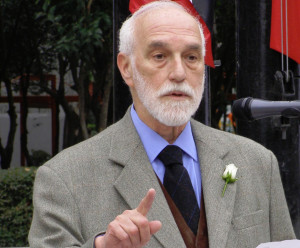“A world without nuclear weapons is essential for the accomplishment of the priority objectives of humanity, those being peace, security and development” said the member States of OPANAL in a statement released on the International Day for the Total Elimination of Nuclear Weapons.
OPANAL was established in 1968 by the States Parties to the Treaty of Tlatelolco – the treaty prohibiting nuclear weapons in Latin America and the Caribbean. The treaty, which is now supported by all countries in the region, has ensured the non-proliferation of nuclear weapons in the region. The Agency promotes full respect for the zone from the nuclear-armed States (some of them still have reservations relating to the protocols not to threaten, use or deploy weapons in the zone), and supports the global prohibition and elimination of nuclear weapons.
In 2013, OPANAL and the Tlatelolco received the Future Policy Award for the best global policy on disarmament.

In it’s statement released on September 26, OPANAL demands “that nuclear weapons not be used again, under any circumstances by any actor,” and that negotiations should begin immediately on a nuclear weapons convention – “a universal and legally binding instrument prohibiting the possession, development, production, acquisition, testing, stockpiling, transfer, use or threat of use of nuclear weapons and including provisions for their destruction in a transparent, irreversible and verifiable manner under a multilaterally agreed timetable.”
- OPANAL statement – Spanish
- OPANAL statement – English
- OPANAL statement – Portuguese

